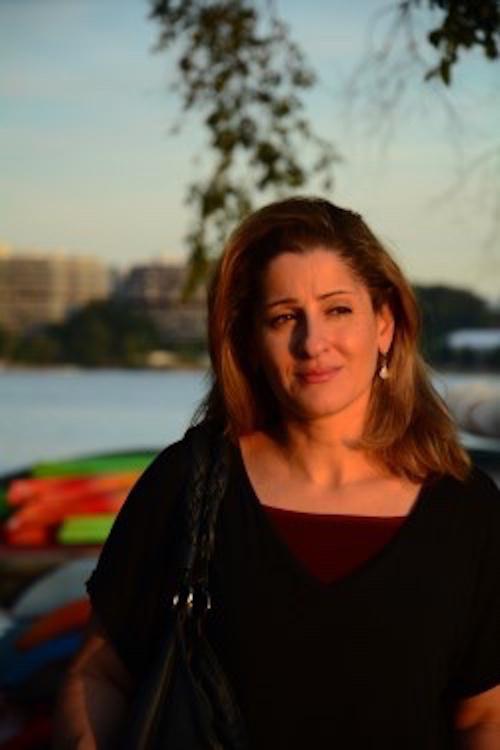Experts
Marwa Daoudy

Former Nonresident Scholar, Malcolm H. Kerr Carnegie Middle East Center
About
Marwa Daoudy is no longer with the Malcolm H. Kerr Carnegie Middle East Center.
Marwa Daoudy was a nonresident scholar at the Malcolm H. Kerr Carnegie Middle East Center and is an associate professor of international relations at Georgetown University’s School of Foreign Service (SFS) and the Seif Ghobash Chair in Arab Studies at the Center for Contemporary Arab Studies (CCAS). Dr. Daoudy leads the center's work on climate change, governance, and conflict. Dr. Daoudy brings her expertise on critical and human security, environmental politics, climate security, water politics, peace negotiations, and Middle East politics to Carnegie.
Dr. Daoudy's second book on The Origins of the Syrian Conflict: Climate Change and Human Security (Cambridge University Press, 2020) won the 2020 Harold and Margaret Sprout Prize by the International Studies Association, awarded for the best books in the field of environmental studies. Her first book, The Water Divide between Syria, Turkey and Iraq: Negotiation, Security and Power Asymmetry, (CNRS Editions, 2005) received the Ernest Lémonon Prize by the Institute of France at the French Academy (Académie Française). She also co-authored (with David Phillips, Stephen McCaffrey, Joakim Öjendal and Anthony Turton) Transboundary Water Cooperation as a Tool for Conflict Prevention and Broader Benefit-Sharing (2006). Among her recent publications feature articles titled “Migration and the 2030 Agenda: Migration as a Path to a More Sustainable World” (One Earth, 2022), “What is Climate Change? Framing Risks around Water, Food and Migration in the Middle East and North Africa” (co-authored with Jeannie Sowers and Erika Weinthal) (WIREs Water, 2022), “Scorched Earth: Climate and Conflict in the Middle East” (Foreign Affairs, 2022), “Rethinking the Climate–Conflict Nexus: A Human–Environmental–Climate-Security Approach” (Global Environmental Politics, 2021), “Climate and Conflict: Lessons from the Syria Case” (in The Oxford Handbook of Comparative Environmental Politics, 2021), “Water Weaponization in the Syrian Conflict: Strategies of Domination and Cooperation” (International Affairs, 2020), an opinion piece on “The Syrian Revolution: A Story of Politics, not Climate Change” (the Royal United Services Institute, RUSI, 2022) and a report titled Syria’s Human Security is Inseparable from Its Environmental Health (The Century Foundation, 2020). Her current work focuses on climate-induced and conflict-induced impacts on vulnerable populations such as women, rural communities, and refugees in the Arab world.
Dr. Daoudy has recently been featured in the Wall Street Journal, Agence France Presse, Vice Arabia, BBC World Service and NewsNight, Al Jazeera, France 24 and other news media. She has also contributed to a series of podcasts, such as Syria Alternatives, Duck of Minerva, The Fires This Time, Centre Arabe de Recherches et Etudes Politiques (CAREP), CSIS Babel, Chatham House UnderCurrents, SEPADPod and others.
Dr. Daoudy has collaborated with the UNESCO-World Water Assessment Program (WWAP), the UN-ESCWA (UN Social and Economic Commission for Western Asia, Beirut) and advised the United Nations Development Program (UNDP, Jerusalem) on Palestinian water rights in the Middle East peace and water negotiations.
Education
PhD, Graduate Institute for International and Development Studies, MA, Graduate Institute for International and Development Studies, BA, Graduate Institute for International and Development Studies,
Languages
Arabic, English, French, Italian, Spanish